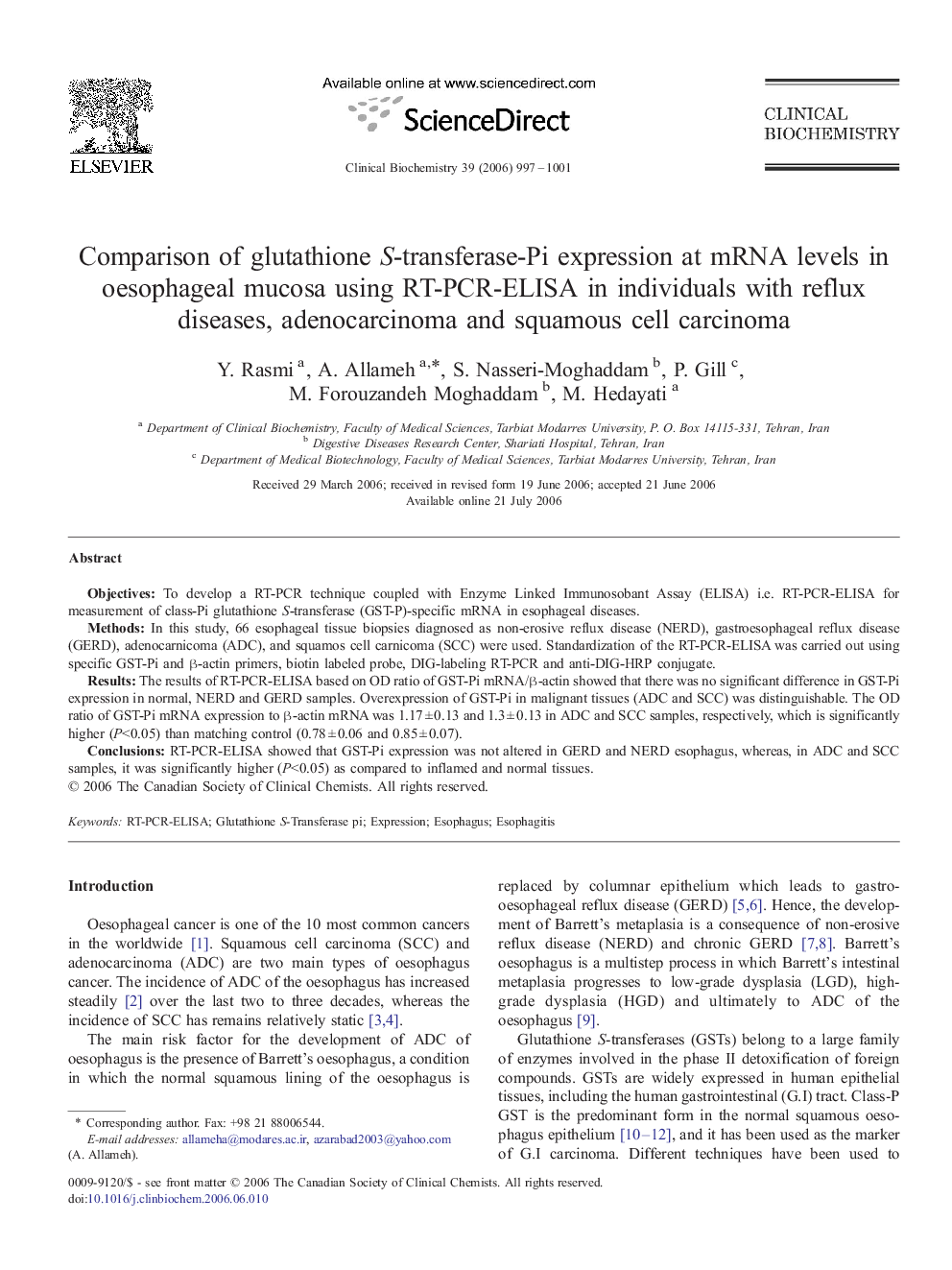| Article ID | Journal | Published Year | Pages | File Type |
|---|---|---|---|---|
| 1971679 | Clinical Biochemistry | 2006 | 5 Pages |
Objectives: To develop a RT-PCR technique coupled with Enzyme Linked Immunosobant Assay (ELISA) i.e. RT-PCR-ELISA for measurement of class-Pi glutathione S-transferase (GST-P)-specific mRNA in esophageal diseases.Methods: In this study, 66 esophageal tissue biopsies diagnosed as non-erosive reflux disease (NERD), gastroesophageal reflux disease (GERD), adenocarnicoma (ADC), and squamos cell carnicoma (SCC) were used. Standardization of the RT-PCR-ELISA was carried out using specific GST-Pi and β-actin primers, biotin labeled probe, DIG-labeling RT-PCR and anti-DIG-HRP conjugate.Results: The results of RT-PCR-ELISA based on OD ratio of GST-Pi mRNA/β-actin showed that there was no significant difference in GST-Pi expression in normal, NERD and GERD samples. Overexpression of GST-Pi in malignant tissues (ADC and SCC) was distinguishable. The OD ratio of GST-Pi mRNA expression to β-actin mRNA was 1.17 ± 0.13 and 1.3 ± 0.13 in ADC and SCC samples, respectively, which is significantly higher (P<0.05) than matching control (0.78 ± 0.06 and 0.85 ± 0.07).Conclusions: RT-PCR-ELISA showed that GST-Pi expression was not altered in GERD and NERD esophagus, whereas, in ADC and SCC samples, it was significantly higher (P<0.05) as compared to inflamed and normal tissues.
